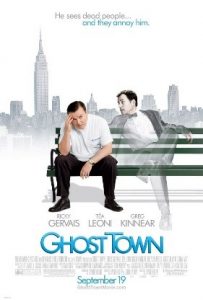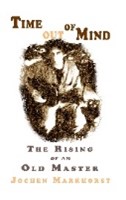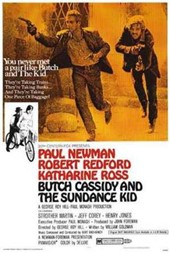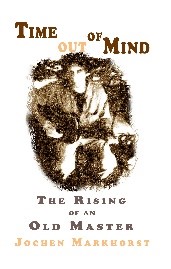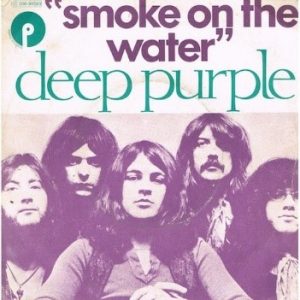By Tony Attwood
This has never been one of my favourite Dylan songs – his performance (for me, and this is as ever a very personal reflection) is (in terms of the original Dylan release) too slow. The viola and the harmonica clash, the percussion is too heavy, the instrumental verse after one vocal verse stops the song from progressing… Of course none of that stops this being a song that millions love – it is just a personal reflection. And for me only the middle 8 (We grew up together from the cradle to the grave…) saves it, (mysteriously in fact, as the lyric says) but then it is so short the relief hardly has a chance to settle in.
So it is with some trepidation that I steel myself to listen to a collection of cover versions. And here there is relief. If you have a moment, play Dylan’s own version first… and then go straight on to Lisa Wahladnt…
Lisa Wahlandt has rescued the song for me. She sings it with the lightness I believe it needs, she has a stunningly beautiful voice, and the arranger knows exactly what she or he is doing. Here the cello works to perfection, the middle 8 now sits simply in all its glory, and I can take in the emotions.
And just listen to what she does to the lyrics “from the cradle to the grave”.
If you would like to know a little more about this extraordinary performer she has a superb website.
Of course having started by saying that I find the Dylan version to be very hard going and then offered a performance of sublime and utter elegance, what else can be offered?
Actually nothing much – so you might want to stop reading here and just go back to playing the above version again, but if you insist on keeping on…
Andrew Bird and Nora O’Connor, in my view, get it half right, although my own view is that they could be with a totally different video, or maybe no video at all.
And listening to this version, it does seem to emphasize the feeling that this song presents a real problem in terms of accompaniment, although I don’t quite know why. What is that strummed string instrument? A banjo? A strummed violin??? I am not at all sure, but whatever it is, I wish it wasn’t. And I am not at all sure about the whistling either. But take that out, and what one would have would be a lovely version of this piece.
So I am wondering if the arranger heard Bob’s version and thought, “ok we need some extraneous instrumental sounds in it,” without actually thinking, “Why do we need these extraneous instrumental sounds?” After all, just because Bob and co did it, it doesn’t mean it’s right.
The introduction to Jimmy LaFave’s version brings hope that simplicity will be restored, and to a degree it is, but the sudden desire to emphasize individual guitar notes again surely comes from what the arranger of LaFave’s version hears on the Dylan original. And sady Mr LaFave feels the need the throw in a few extra lorry loads of emotion, which I really don’t think are needed. I don’t have a sister, but I did find out (earlier this year in fact) that I have a brother I never knew about. We have now met once, and are about to meet for a second time. So I think I know a little about having a brother, if not a sister. And believe me this type of accompaniment has got nothing to do with the emotions that overwhelm me every time I think about my brother, just discovered, who through all my life I never knew existed).
But I digress. Back with the music the accordionist then feels he/she needs a few twiddles…
Yes really there is something about this song that makes vocalists, arrangers and instrumentalists go over the top. It is a simple, gentle song talking about powerful emotions. What have twiddles got to do with it?
I’ve noted the work of VSQ a few times in the past and at least we know with them we won’t get any larking about with unexpected instruments. Two violins, a viola and cello, that’s what you get.
The trouble is, the repetitive nature of this song doesn’t lend itself to the string quartet. The lead violinist does a sterling job but we still get a feeling of chug-chug-chug which is not the slightest bit implied by the original or the lyrics.
And oh, the middle 8 is a disaster. I had to stop the recording.
So, ten out of ten to Lisa Wahlandt, and minus several million out of ten to everyone else. And after that I needed to clear my mind.
Now you might well not agree with me at all, in which case I’m amazed you’ve got this far, but as you are here, and in case you need lifting as I have feel I need lifting, having listened to these versions of what is beneath it all a beautiful song, here is a bit of fun, but with the same problem of an over-enthusiastic arranger.
What you find below is a fun song, but just listen to the instrumentation of the chorus (“Take it easy, take it light…”) It is the same problem. “OK guys we need something else in the chorus – how about a few thumps?”
But maybe it’s just me turning into a grumpy old man. Maybe my adrenalin level is above the danger mark because I’m about to meet my brother for a second time. If that is the case, take no notice. Tonight I’m going to London to watch my football team tonight, a bit of shouting and cheering ought to sort me out. (As long as my team win).
The Dylan Cover a Day series
- The song with numbers in the title.
- Ain’t Talkin
- All I really want to do
- Angelina
- Apple Suckling and Are you Ready.
- As I went out one morning
- Ballad for a Friend
- Ballad in Plain D
- Ballad of a thin man
- Frankie Lee and Judas Priest
- The ballad of Hollis Brown
- Beyond here lies nothing
- Blind Willie McTell
- Black Crow Blues (more fun than you might recall)
- An unexpected cover of “Black Diamond Bay”
- Blowin in the wind as never before
- Bob Dylan’s Dream
- You will not believe this… 115th Dream revisited
- Boots of Spanish leather
- Born in Time
- Buckets of Rain
- Can you please crawl out your window
- Can’t wait
- Changing of the Guard
- Chimes of Freedom
- Country Pie
- Crash on the Levee
- Dark Eyes
- Dear Landlord
- Desolation Row as never ever before (twice)
- Dignity.
- Dirge
- Don’t fall apart on me tonight.
- Don’t think twice
- Down along the cove
- Drifter’s Escape
- Duquesne Whistle
- Farewell Angelina
- Foot of Pride and Forever Young
- Fourth Time Around
- From a Buick 6
- Gates of Eden
- Gotta Serve Somebody
- Hard Rain’s a-gonna Fall.
- Heart of Mine
- High Water
- Highway 61
- Hurricane
- I am a lonesome hobo
- I believe in you
- I contain multitudes
- I don’t believe you.
- I love you too much
- I pity the poor immigrant.
- I shall be released
- I threw it all away
- I want you
- I was young when I left home
- I’ll remember you
- Idiot Wind and More idiot wind
- If not for you, and a rant against prosody
- If you Gotta Go, please go and do something different
- If you see her say hello
- Dylan cover a day: I’ll be your baby tonight
- I’m not there.
- In the Summertime, Is your love and an amazing Isis
- It ain’t me babe
- It takes a lot to laugh
- It’s all over now Baby Blue
- It’s all right ma
- Just Like a Woman
- Knocking on Heaven’s Door
- Lay down your weary tune
- Lay Lady Lay
- Lenny Bruce
- That brand new leopard skin pill box hat
- Lily, Rosemary and the Jack of Hearts
- License to kill
- Like a Rolling Stone
- Love is just a four letter word
- Love Sick
- Maggies Farm!
- Make you feel my love; a performance that made me cry.
- Mama you’ve been on my mind
- Man in a long black coat.
- Masters of War
- Meet me in the morning
- Million Miles. Listen, and marvel.
- Mississippi. Listen, and marvel (again)
- Most likely you go your way
- Most of the time and a rhythmic thing
- Motorpsycho Nitemare
- Mozambique
- Mr Tambourine Man
- My back pages, with a real treat at the end
- New Morning
- New Pony. Listen where and when appropriate
- Nobody Cept You
- North Country Blues
- No time to think
- Obviously Five Believers

